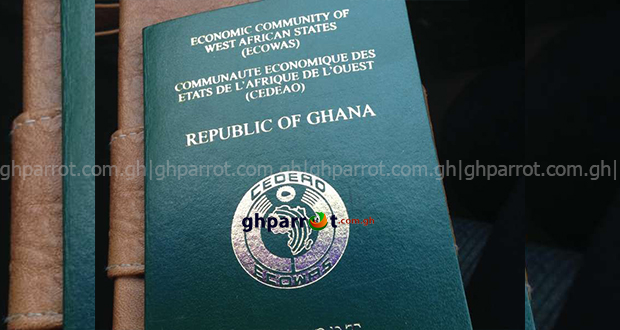
Samuel Okudzeto Ablakwa, Minister for Foreign Affairs and Regional Integration, has announced that Ghana will officially begin issuing chip-embedded passports on Monday, April 28, 2025, marking a major upgrade to the country’s passport system.
The new e-passports, which were first unveiled on December 2, 2024, boast enhanced biometric features designed to streamline international travel, improve data security, and align Ghana with global standards for travel documentation.
At the heart of the upgrade is a secure microchip embedded in each passport, storing the holder’s biometric and photographic information. These passports also feature sophisticated anti-fraud mechanisms, including both visible and hidden security elements.
ALSO READ: President Mahama Appoints Ebi Bright as Mayor of Tema
The new design not only prioritizes security but also proudly reflects Ghana’s rich cultural heritage. Adorned with iconic Adinkra symbols such as Fawohodie (representing Freedom and Independence) and Funtunfunefu Denkyemfunefu (symbolizing Democracy and Cooperation), the passports serve as both a modern travel document and a celebration of national identity.
Speaking at a press briefing in Accra on Wednesday, April 23, Mr. Samuel Okudzeto Ablakwa emphasized that the launch of the chip-embedded passports marks a pivotal move in a broader reform initiative. The Ministry’s objective, he explained, is to enhance security, eliminate middlemen from the application process, and deliver a more transparent, efficient, and citizen-focused passport service.
“These reforms are designed to put the Ghanaian citizen at the center of passport delivery, making the process more accessible and secure,” he stated.
Among the comprehensive reforms slated for 2025 are 24-hour passport processing, home and office courier delivery services, an electronic tracking system for applications, and a 30% reduction in application fees.
Chip-embedded passports—already adopted in numerous countries around the world—offer robust protection against identity theft and forgery, making them a vital tool in today’s digital age.
Mr. Ablakwa highlighted the move as a significant step in Ghana’s broader digital transformation agenda. “This initiative reflects our commitment to digitising public services and modernising our systems to meet global standards,” he said.
As Ghana joins the growing list of countries adopting e-passports, the government reaffirms its commitment to innovation, transparency, and the protection of citizens’ identity and data.






